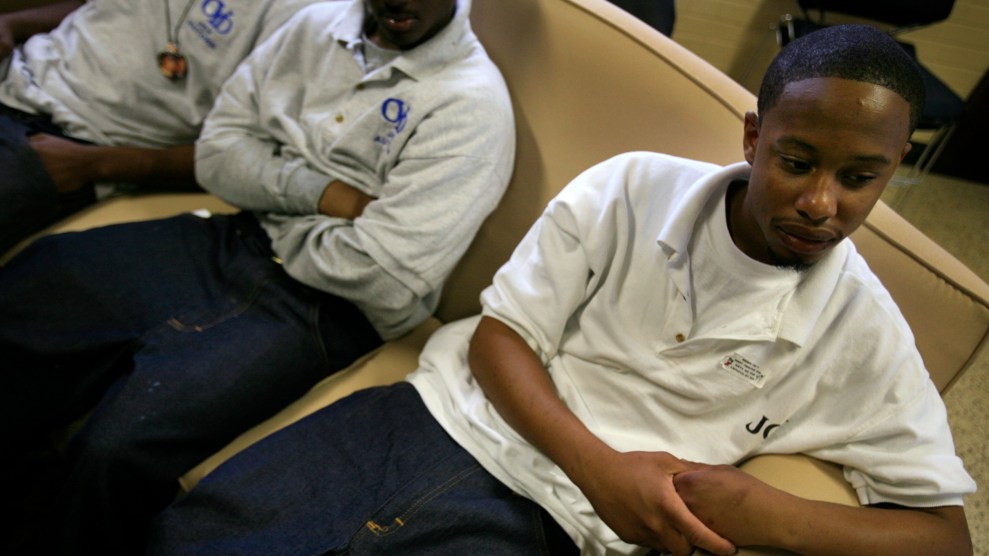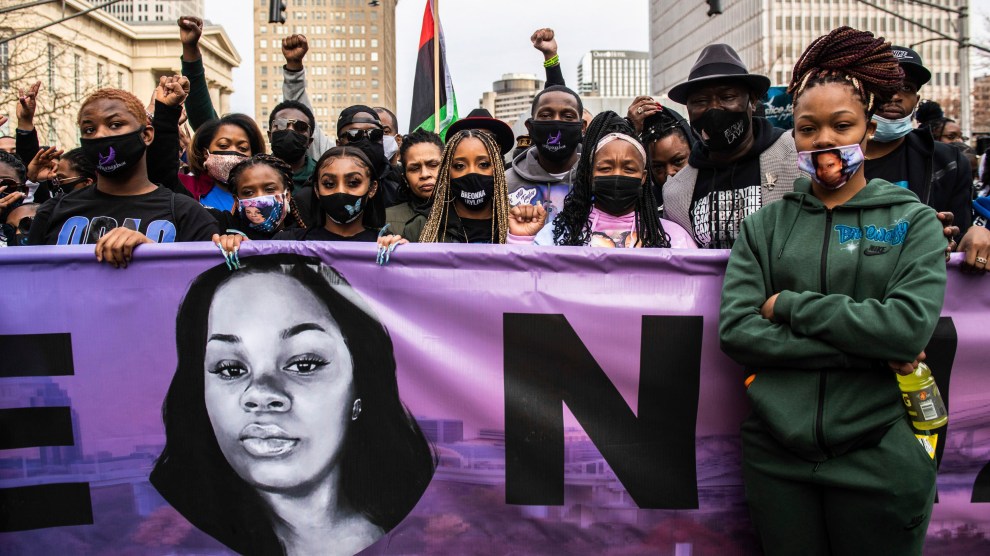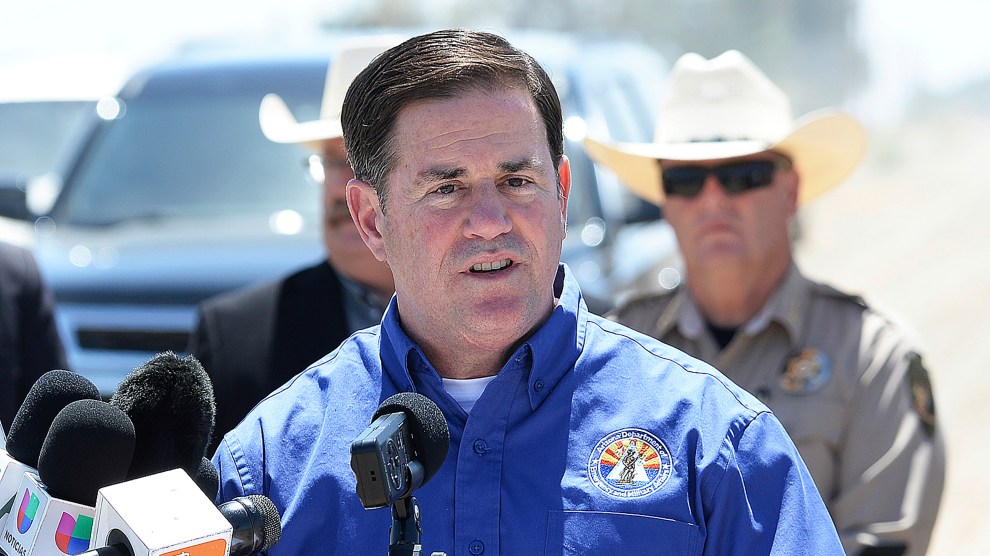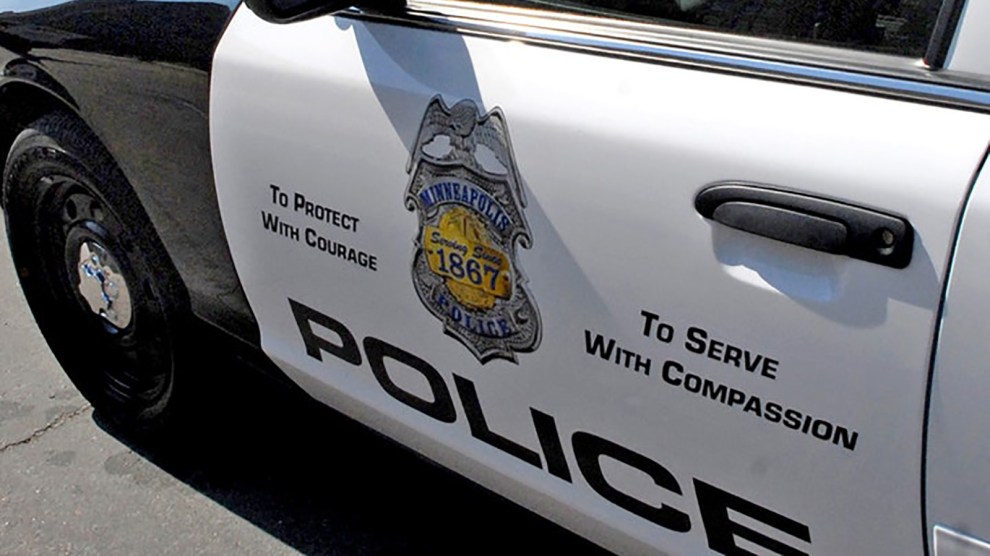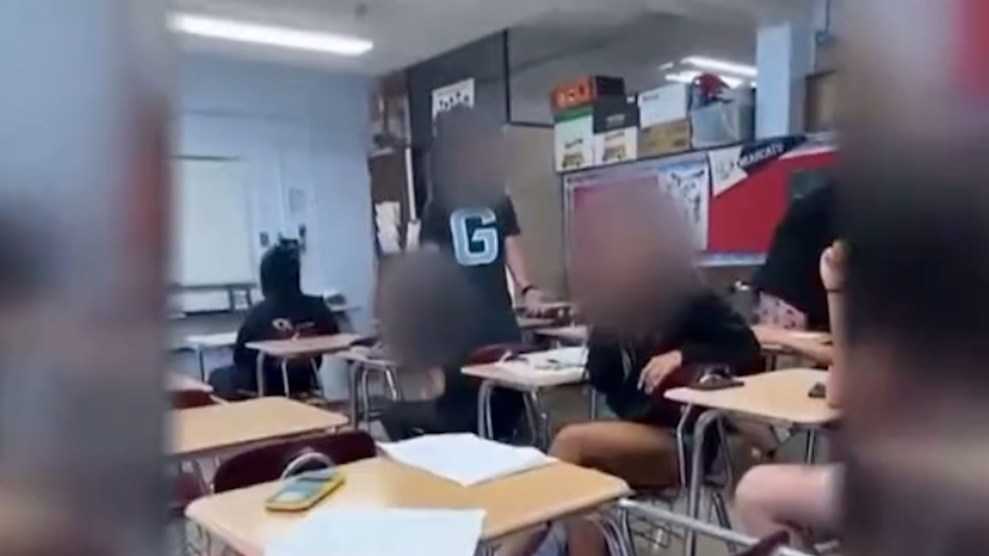
Screenshot from KY3
A Missouri high school student is fighting a three-day suspension after filming a teacher using the N-word multiple times during class.
Mary Walton, a 15-year-old high school sophomore at Glendale High School, recorded her teacher saying the N-word twice during a conversation in which the teacher, who is white, allegedly questioned why they weren’t able to use the racial slur when Black people could. The teacher noticed Walton filming and instructed her to put her phone away. Walton told the Springfield News-Leader that she sent the video to her mother and one friend.
“I didn’t upload it, I just shared it with one friend,” she said. “It spread really, really fast.”
The teacher, who remains unidentified, was placed on paid leave. But on Friday, Walton was handed a three-day suspension for violating the school’s electronic device policy. Walton and her mother, Kate Welborn, are reportedly challenging the punishment and demanding an apology from the school.
A Missouri teacher has been placed on administrative leave after saying the N-word multiple times in front of students.
The student who recorded the video received a 3 day suspension for violating the school district's electronic device policy. https://t.co/ByCSl0ww4t pic.twitter.com/VixoozVErR
— philip lewis (@Phil_Lewis_) May 16, 2023
The incident has raised concern such punishment will discourage students from calling out potential racial injustices in order to follow school rules. “This kid did what we want people to do—see something, say something,” Walton’s lawyer, Natalie Hull, told Washington Post. “Now we’re telling students, ‘If you see something, don’t show it, because then you’ll get suspended.'”
Walton’s suspension comes amid wider instances of people getting punished while fighting abuse by authority figures. In countless incidents across the country, there have been horrifying stories of officers confiscating phones and violently detaining individuals attempting to film police abuse. Last year, Arizona even made it illegal to film within eight feet of law enforcement. As my colleague Abigail Weinberg reported:
Bystander videos of law enforcement activity have prompted cries for police reform across the country, and, as in the case of George Floyd, have been instrumental in securing justice following police violence. The bill’s sponsor said in an op-ed that the legislation aims to prevent people from interfering with law enforcement, but critics argue that it will lead to decreased visibility of police misconduct and that it infringes on First Amendment rights.
Taken together, it’s difficult not to see this trend of punishing those who record abuse as an all but certain effort to silence people willing to speak up.

